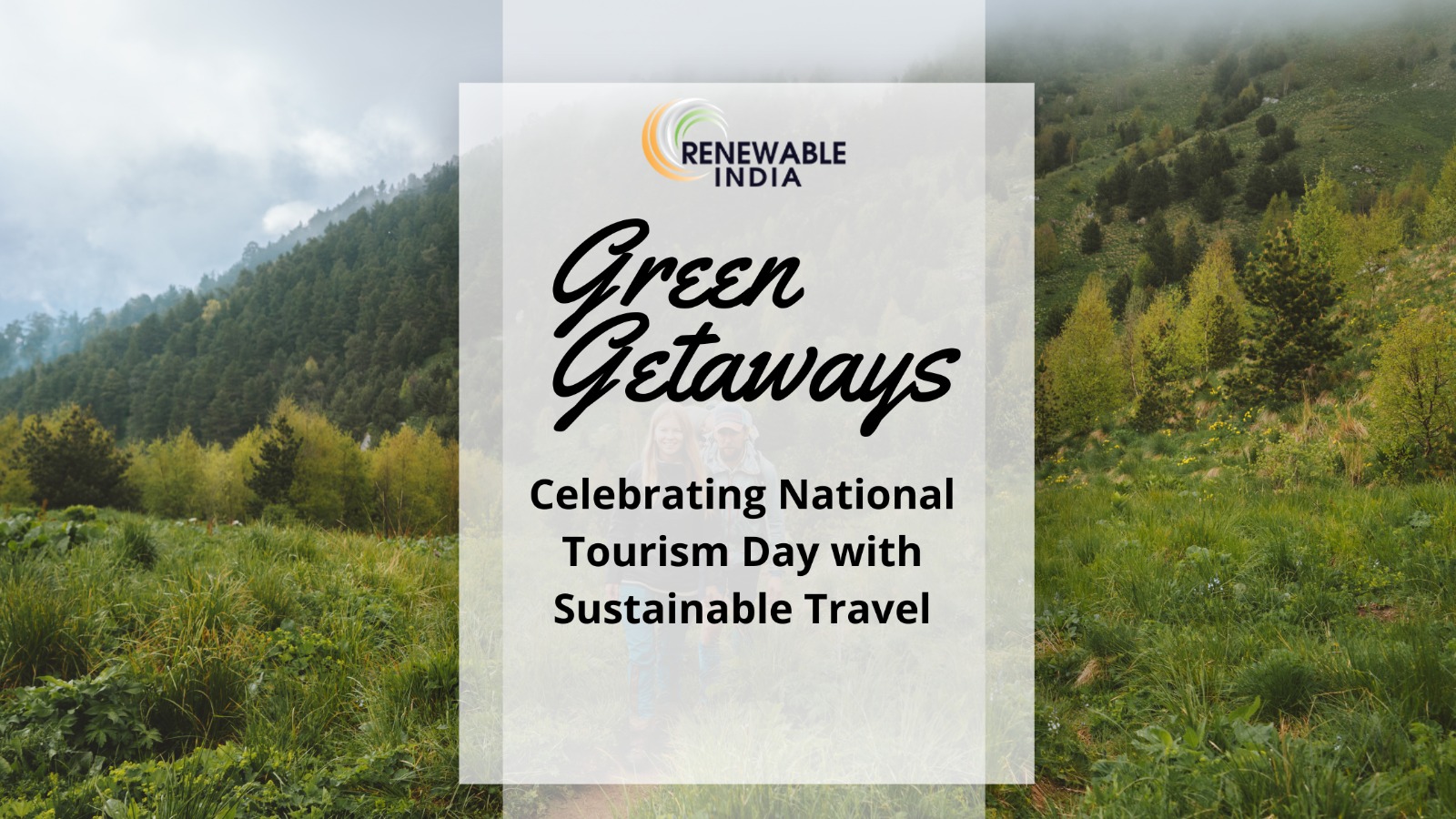
National Tourism Day in India is not merely a date on the calendar; it’s a celebration of the diverse and enchanting tourist destinations that the country has to offer. This year’s theme, “Sustainable Journeys, Timeless Memories,” resonates with a commitment to responsible tourism and mindful travel practices.
As we delve into the significance of National Tourism Day, let’s also explore the growing realm of sustainable tourism in India, highlighting states and companies that are leading the way in promoting sustainable travel experiences.
Every year on January 25th, National Tourism Day provides an opportunity to recognise the diverse ways that tourism affects social, political, economic, and cultural facets worldwide. The goal of the day, which was established by the Indian government in 1948, is to increase public awareness of the critical role that tourism plays in promoting economic development, cross-cultural dialogue, and global interconnectedness.
The celebration goes beyond festivities; it’s an opportunity to express gratitude to visitors who contribute both financially and culturally to India. National Tourism Day encourages reflection on the economic significance, cultural richness, and global impact of tourism on the nation’s identity.
Read more about the criteria and indicators applicable to accommodation sector and tour operators – https://tourism.gov.in/sites/default/files/2020-01/Document.pdf
Several Indian companies have assumed the responsibility of encouraging ethical and environmentally friendly travel habits. To promote sustainable tourism practices throughout the Indian travel and tourism ecosystem, MakeMyTrip, a well-known industry leader, has partnered with the Global Sustainable Tourism Council (GSTC).
Karnataka-based hotel group Evolve Back is a prime example of the merging of luxury with eco-tourism. Evolve Back, which has resorts in Kabini, Coorg, and Hampi, is a testament to ethical behaviour when it comes to water, electricity, and waste management. It offers guests luxury accommodations with a focus on sustainability.
Another noteworthy example is the Spiti Ecosphere, which sets the standard by implementing precautions necessary for traveling through fragile ecological areas. By supporting local businesses, encouraging the use of solar energy, and facilitating community-run homestays, they make sure that tourism in Spiti doesn’t tarnish the unspoiled beauty of the chilly desert region.
India Untravelled promotes responsible tourism by providing genuine travel experiences in the nation’s rural farm stays and sustainable homestays. Through interactions with people and the opportunity to sample customs, cuisine, and culture, this project fosters a deeper bond between visitors and the destinations they see.
Green People, operating in the Garhwal region of Uttarakhand, focuses on sustainable agriculture and reverse migration of farmers. They have established “Goat Villages,” cultivating superfoods locally and providing a supply chain that supports the region’s economy while offering luxurious resorts built in the Garhwali style.
While a thriving tourism industry is indeed positive, it’s crucial to ensure that travel practices are sustainable and considerate of the environment. Eco-tourism emerges as a solution, emphasizing responsible travel to natural areas that conserve the environment, support local communities, and educate visitors.
(a) Known as the ‘Land of the Rising Sun,’ Arunachal Pradesh boasts pristine landscapes, hills, mountains, and diverse ecosystems.
(b) The state is committed to biodiversity conservation, featuring protected areas, parks, and sanctuaries.
(c) The ‘Pakke Paga Hornbill Festival’ reflects a dedication to conservation, making Arunachal Pradesh a haven for eco-tourists.
(a) Taglined as ‘One state. Many worlds,Karnataka offers diverse natural locations and historical sites.
(b) The Karnataka Ecotourism Development Board, established in 2013, promotes conservation and community involvement in eco-tourism.
(c) From the Western Ghats to coffee plantations, Karnataka provides varied ecotourism opportunities.
(a) Known as ‘God’s Own Country,’ Kerala’s 14 districts offer abundant eco-tourism opportunities.
(b) Eco-tourism programs like Eravikulam National Park and Silent Valley National Park provide a complete package for nature enthusiasts.
(c) Activities include bird watching, trekking, rafting, and wildlife safaris.
a) Nicknamed ‘The Heart of India,’ Madhya Pradesh is home to diverse natural treasures like national parks and rock shelters.
(b) The Madhya Pradesh Eco-tourism Development Board focuses on conservation and offers activities like heritage walks, tribal village tours, and nature trails.
(c) The state’s large forest cover, including the Bhimbetka Rock Shelters, adds to its eco-tourism appeal.
(a) With access to the Himalayas, Sunderbans, and the Bay of Bengal, West Bengal offers varied natural landscapes.
(b) The government actively promotes eco-tourism, with the West Bengal State Forest Development Agency developing eco-tourism centers.
(c) Notable attractions include Darjeeling, Kalimpong, Sunderbans, and serene beaches like Digha and Mandarmani.
As we celebrate National Tourism Day with the theme of “Sustainable Journeys, Timeless Memories,” it’s crucial to recognize the evolving landscape of responsible tourism in India.
Companies and states that prioritize eco-tourism contribute significantly to the preservation of natural wonders and the well-being of local communities. Embracing sustainable travel practices ensures that the memories we create today remain timeless for generations to come.
Leave a Reply